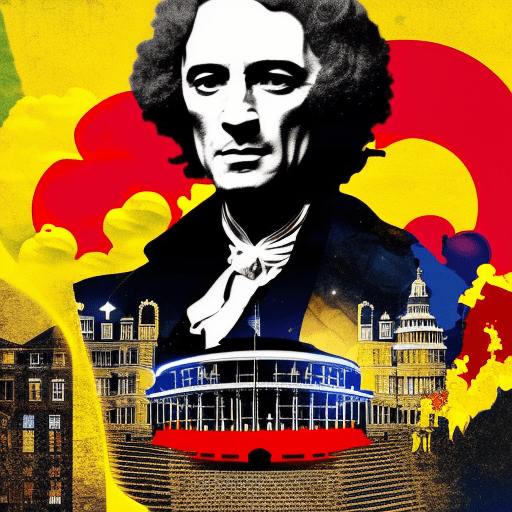The Black Count: Glory, Revolution, Betrayal, and the Real Count of Monte Cristo
One-line summary: The Black Count is a captivating biography that explores the extraordinary life of General Thomas-Alexandre Dumas, the father of the famous author Alexandre Dumas, and sheds light on the racial prejudices and political turmoil of 18th-century France.
In “The Black Count: Glory, Revolution, Betrayal, and the Real Count of Monte Cristo,” author Tom Reiss delves into the remarkable life of General Thomas-Alexandre Dumas, a man whose adventures and achievements were overshadowed by his son’s literary success. This captivating biography takes readers on a journey through 18th-century France, exploring the racial prejudices, political turmoil, and personal triumphs that shaped the life of this unsung hero.
The Rise of a Hero
Born in Saint-Domingue (now Haiti) to a French nobleman and an enslaved African woman, Thomas-Alexandre Dumas faced the challenges of being a mixed-race individual in a society deeply divided by race. Despite his humble beginnings, Dumas’s father recognized his son’s potential and sent him to France for a better education. This decision would prove to be life-changing for Dumas, as it opened doors to opportunities that were otherwise closed to people of color.
Dumas’s military career began when he joined the French army as a private. His exceptional skills and bravery quickly caught the attention of his superiors, propelling him up the ranks. He fought in several campaigns, including the French Revolutionary Wars and the Napoleonic Wars, where he displayed remarkable leadership and strategic prowess.
The Real Count of Monte Cristo
Dumas’s most famous son, Alexandre Dumas, immortalized his father’s adventures in his literary works, most notably in “The Count of Monte Cristo.” The character of Edmond Dantès, the protagonist of the novel, draws inspiration from the real-life exploits of General Dumas. However, while the fictional Count of Monte Cristo seeks revenge, the real Count’s story is one of resilience, courage, and determination.
Throughout his military career, Dumas faced numerous challenges, including racial discrimination and political betrayal. Despite his remarkable achievements, he was often overlooked and marginalized due to his race. His loyalty to the French Republic was rewarded with imprisonment and eventual death in captivity. The book uncovers the injustices Dumas faced and sheds light on the racial prejudices that permeated French society during this time.
The Legacy of General Dumas
“The Black Count” not only provides a detailed account of General Dumas’s life but also offers insights into the broader historical context of 18th-century France. It highlights the racial tensions and social inequalities that shaped the lives of people of color during this period. The book also explores the impact of the French Revolution and the rise of Napoleon Bonaparte on Dumas’s career and personal life.
Key takeaways from “The Black Count” include:
- The remarkable life of General Thomas-Alexandre Dumas, a mixed-race hero who defied societal expectations and achieved greatness in the face of adversity.
- The racial prejudices and discrimination faced by people of color in 18th-century France, which often hindered their social mobility and recognition.
- The complex relationship between General Dumas and his famous son, Alexandre Dumas, whose literary works immortalized his father’s legacy.
- The political turmoil and power struggles of the French Revolution and Napoleonic era, which shaped the course of Dumas’s military career.
In conclusion, “The Black Count: Glory, Revolution, Betrayal, and the Real Count of Monte Cristo” is a captivating biography that brings to light the extraordinary life of General Thomas-Alexandre Dumas. Through meticulous research and engaging storytelling, Tom Reiss paints a vivid picture of a man who defied societal expectations and fought for his ideals in a time of great upheaval. This book serves as a powerful reminder of the resilience and courage of individuals who have been marginalized throughout history.
“He was a man who had been born into slavery and risen to the highest ranks of the French army, who had been feted in Paris and vilified in Paris, who had been a hero to the French Republic and a scapegoat for the French Empire, who had been a father to a great novelist and then forgotten by history. He had been a man who had been born black in a world that was white, and he had been a man who had been born a slave in a world that was free.”












